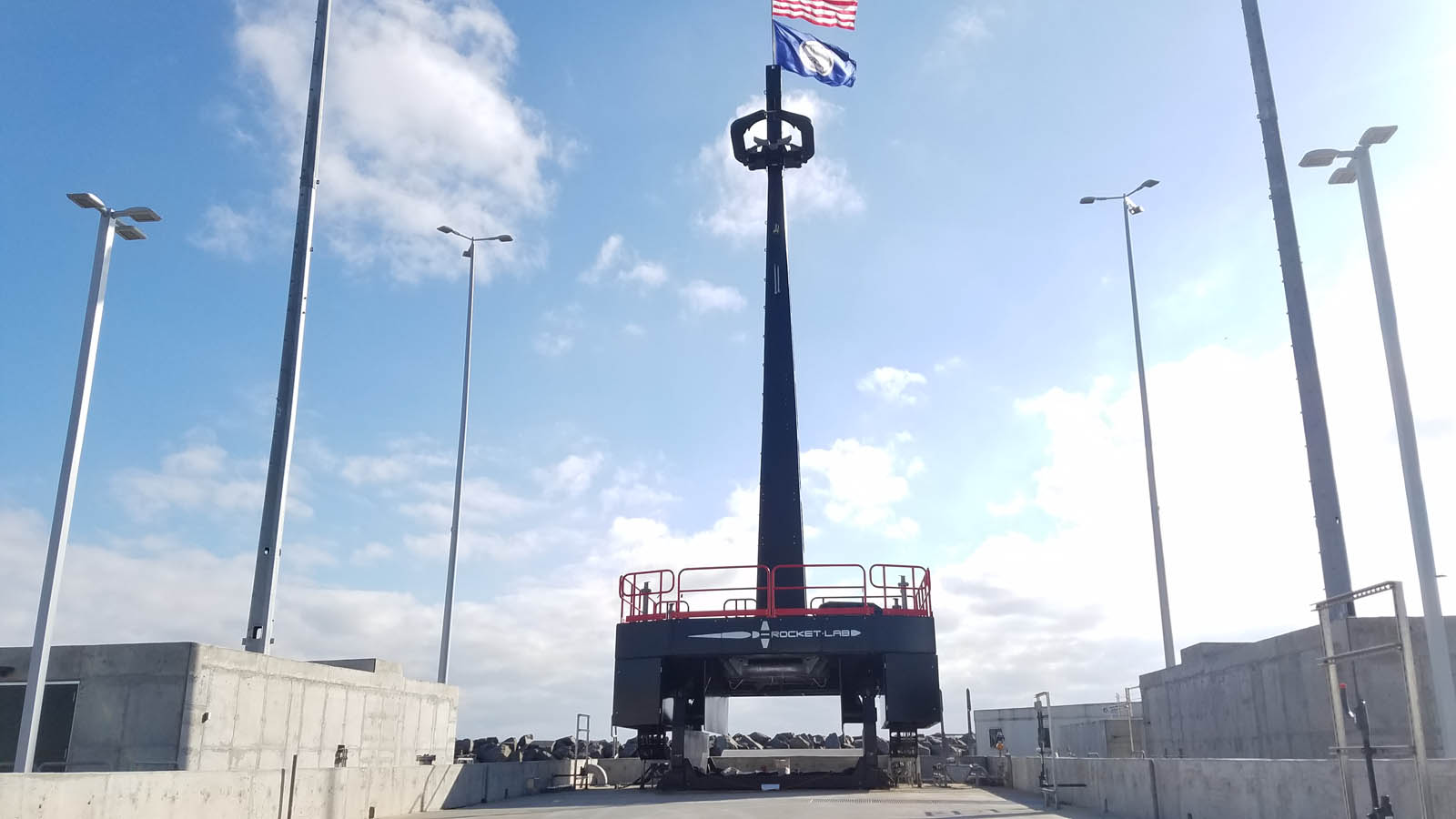Rocket Lab will launch a cubesat to the moon for NASA next year

Breaking space news, the latest updates on rocket launches, skywatching events and more!
You are now subscribed
Your newsletter sign-up was successful
Want to add more newsletters?

Delivered daily
Daily Newsletter
Breaking space news, the latest updates on rocket launches, skywatching events and more!

Once a month
Watch This Space
Sign up to our monthly entertainment newsletter to keep up with all our coverage of the latest sci-fi and space movies, tv shows, games and books.

Once a week
Night Sky This Week
Discover this week's must-see night sky events, moon phases, and stunning astrophotos. Sign up for our skywatching newsletter and explore the universe with us!

Twice a month
Strange New Words
Space.com's Sci-Fi Reader's Club. Read a sci-fi short story every month and join a virtual community of fellow science fiction fans!
Rocket Lab is extending its reach far beyond Earth orbit.
The California-based company has won a NASA contract to launch a tiny cubesat toward the moon, representatives of both organizations announced on Friday (Feb. 14).
The 55-lb. (25 kilograms) Cislunar Autonomous Positioning System Technology Operations and Navigation Experiment spacecraft, or CAPSTONE, will lift off atop a Rocket Lab Electron booster in early 2021, if all goes according to plan.
Related: Rocket Lab and its Electron booster (photos)
The launch will take place from Rocket Lab's pad at the Mid-Atlantic Regional Spaceport (MARS), which is located at NASA's Wallops Flight Facility in Virginia. CAPSTONE will be the second lunar probe to depart from Virginia, after NASA's Lunar Atmosphere and Dust Environment Explorer (LADEE), which lifted off from MARS in September 2013.
After the two-stage Electron gets CAPSTONE aloft, Rocket Lab's Photon satellite bus will fire up its onboard engine, sending the cubesat on a long journey toward the moon. About three months later, CAPSTONE will get itself into a highly elliptical "rectilinear halo orbit" around Earth's nearest neighbor — the same orbit targeted for Gateway, the small space station NASA plans to build as part of its Artemis lunar-exploration program.
"CAPSTONE is a rapid, risk-tolerant demonstration that sets out to learn about the unique, seven-day cislunar orbit we are also targeting for Gateway," Marshall Smith, director of human lunar exploration programs at NASA headquarters in Washington, said in a statement. "We are not relying only on this precursor data, but we can reduce navigation uncertainties ahead of our future missions using the same lunar orbit."
Breaking space news, the latest updates on rocket launches, skywatching events and more!
Rocket Lab has launched 11 missions to date using the 57-foot-tall (17 meters) Electron, a vehicle designed to loft small satellites rapidly, efficiently and relatively cheaply. All of those flights went to Earth orbit, however, so CAPSTONE will mark a big leap for the company.
"Small satellites like CAPSTONE will play a crucial role in supporting the return of human missions to the moon, and we’re proud to be supporting NASA in this unique and pivotal mission," Rocket Lab founder and CEO Peter Beck said in a different statement. "In the same way we opened access to low Earth orbit for small satellites, we’re proud to be bringing the moon within reach to enable research and exploration."
The fixed-price CAPSTONE launch contract is worth $9.95 million, NASA officials said. In September 2019, the space agency awarded Colorado-based company Advanced Space a $13.7 million contract to develop and operate the little satellite.
The MARS facility is Rocket Lab's second launch complex. The first, on New Zealand's North Island, has supported all 11 Electron liftoffs to date.
Electron is currently an expendable vehicle, but Rocket Lab plans to begin recovering and reusing the booster's first stage. The company successfully guided first stages back down toward Earth during the last two Electron launches and may soon take the next step: attempting to snag a falling booster out of the sky with a helicopter.
- What's next for Rocket Lab? A Q&A with CEO Peter Beck
- Rocket Lab's 'Rosie' the robot can build a booster in just 12 hours
- Tour Rocket Lab's stunning New Zealand launch site in this video
Mike Wall's book about the search for alien life, "Out There" (Grand Central Publishing, 2018; illustrated by Karl Tate), is out now. Follow him on Twitter @michaeldwall. Follow us on Twitter @Spacedotcom or Facebook.
OFFER: Save at least 56% with our latest magazine deal!
All About Space magazine takes you on an awe-inspiring journey through our solar system and beyond, from the amazing technology and spacecraft that enables humanity to venture into orbit, to the complexities of space science.

Michael Wall is a Senior Space Writer with Space.com and joined the team in 2010. He primarily covers exoplanets, spaceflight and military space, but has been known to dabble in the space art beat. His book about the search for alien life, "Out There," was published on Nov. 13, 2018. Before becoming a science writer, Michael worked as a herpetologist and wildlife biologist. He has a Ph.D. in evolutionary biology from the University of Sydney, Australia, a bachelor's degree from the University of Arizona, and a graduate certificate in science writing from the University of California, Santa Cruz. To find out what his latest project is, you can follow Michael on Twitter.

